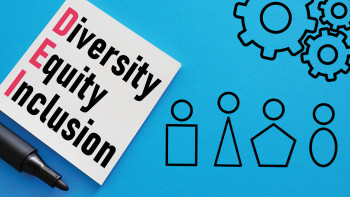
deally, business and ethics should walk hand in hand. Unfortunately, they seldom do.
The last few decades have witnessed the simultaneous rise of big business and bigger scams. Ironically, the same period has seen the emergence of several industrial, business and technology icons who have changed the face of the earth. By creating large-scale employment, immense business opportunities for medium and small entrepreneurs, wealth for ordinary shareholders and bodies dedicated to corporate social responsibility, these so called capitalists have done more for the society than many self-proclaimed socialists and communists.
Yet business and profit continue to be dirty words in public perception. Perceptions are powerful. Reinforced over a period of time, they become an integral part of collective memory which is not easy to alter let alone erase and rewrite.
And when you live in Nepal, which figures so high on the world corruption index, it is easy to see corruption even where none exists. Don’t we keep seeing ghosts when none exist?
But isn’t it strange that while we are ever ready to discuss business ethics, we do not care much about ethics in politics? I am not trying to build a case for businessmen, good or bad. I simply wish to point out the fact that while there is no dearth of court and police cases against different sections of the business class in the country, cases against politicians are few and far between. Also, the ones which are launched rarely reach a logical conclusion. I will not stoop down to the name-and-shame game, and I need not too because the licentiousness enjoyed by the ruling class is an open secret in Nepal.
The reason why I am raising this issue in a business magazine is that the socio-economic root cause of corruption needs to be looked into comprehensively. This calls for some forthright confession before moving ahead. Yes, there is corruption and violation of ethics in business in Nepal.
There is no denying that. But it is less or, may be, at par with any other social class – certainly the country’s ruling elite comprising politicians and administrators, currently, and the monarchy in the past. Business is rooted in society and is ruled by the prevailing culture – political, bureaucratic, administrative, social and even historical.
Readers would appreciate that the country’s business class, including industry owners, senior managers, executives and even small shopkeepers, needs to abide by a host of rules and regulations, which are most of the time un-thought of, arbitrary and ad-hoc. With lack of transparency pervading all our systems in Nepal, the powers that be at different levels have ample leeway for arm twisting businessmen, traders, shopkeepers and the like. Greasing their palms has turned into a fine art. If you don’t, you run the risk of slipping away into business oblivion. So for sheer survival, many from the business world have fallen in line with the systems promoted and propagated by the ruling elite. Experts at manipulating, manoeuvring and tending to itching palms have risen to great heights.
Truth be said, no businessperson, owner or employee, likes being corrupt or unethical. But business folk have not descended from another planet. They are products of the prevailing socio-economic culture. Personal and professional lives overlap each other. Those impact each other. In the process, the two get mutually moulded. The tragedy is that the over-weaning and all powerful system shapes, and the ordinary individual, willy-nilly, gets shaped.
Unethical practices become acceptable to the individual as he sees no great stigma attached to them. Corruption appears to be a way of collective life. The individual, in this context the business promoter and manager, sees the protectors of public morality steeped in corruption and going scot free. He hardly finds any ideals to follow.
That my contention has substance is obvious from the high levels of honesty in social and business life in Scandinavian and Nordic countries like Sweden, Norway, Denmark, and Finland, Iceland and The Netherlands and their long adherence to ethics and humanitarian principles. No wonder, these countries are viewed as perfect playfields for existing and aspiring businessmen and managers. There is rule of law. There are no ethical dilemmas. That is the perfect environment for business. Lapses do happen. But those are exception and not the rule. Why? Because business ethics and principles gradually become part of the national psyche.
We tell students about the beautiful flowers and fruits of the business garden. We talk only about rewards and enticements. We create unrealistic dreams for them. We goad them to achieve those senseless goals without caring for the means they would use in this mad pursuit. But we have hardly a word highlighting the roots of business – ethics, principles, dedication, perseverance, innovation, lateral thinking, et al. We offer mere skills, those too bookish, dated and outmoded. But what about the much needed value system? Its need does not even seem to occur to us.
Management researchers Donaldson and Werhane (1993) have described ethics as ‘a study of the human values of people in business practice’. Several other experts like Kohlberg (1981 and 1987), Borkowski & Ugras (1992), Dees & Starr (1992), Vittel (2000) and others have written that virtue is based on principles of justice which people imbibe over a life time and it becomes embodied in social institutions. That is why it has been surmised that ethics is the study of whatever is good for humans. In fact, Fatoki & Merembo (2012) highlighted the vital need for a business organization to follow a code of business to ensure higher profitability and performance.
I recall that the World Forum for Ethics in Business Excellence had organised a conference in Kathmandu on January 17, 2014. The topic was ‘Business ethics for a prosperous Nepal’. Over 600 delegates had participated. On January 15, a talk and discussion was held on the role of women in instilling human values and ethics in society. It is obvious that management experts have higher trust in women when it comes to encouraging human values in society.
But what since then? Little that I am aware of despite being in the epicentre of business and commerce.
However, given the current environment not many may pay heed to the need for being ethical. Corruption fetches quick money. But countries which have really made it big in business are the ones who remained wedded to a pro-humanity value system. There is an age-old saying: honesty is the best policy. It may sound jaded to some today. But old is still gold. It embodies the proven wisdom of mankind.






